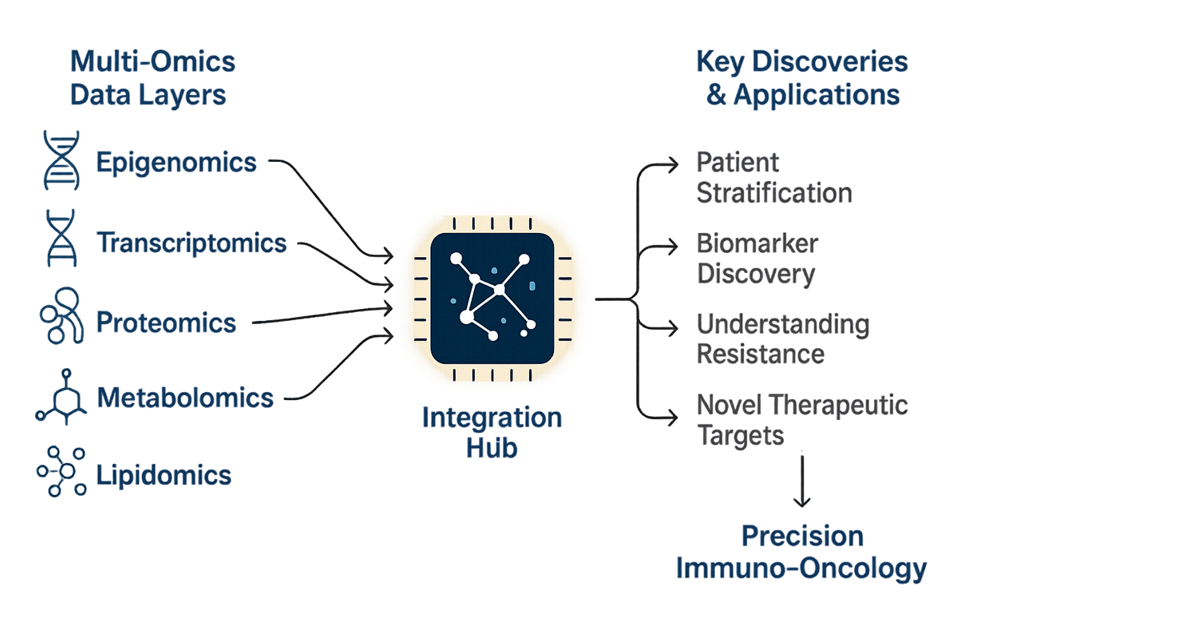Multi-Omics Technologies in Immunity Within Tumors
A special issue of Cells (ISSN 2073-4409).
Deadline for manuscript submissions: 31 March 2026 | Viewed by 191

Special Issue Editors
Interests: multi-omics; AI application in biomedicine and drug discovery
Special Issue Information
Dear Colleagues,
Cancer immunotherapy has revolutionized oncology, offering durable clinical benefits to a growing number of patients. However, its success is often limited to a subset of individuals, highlighting the profound complexity and heterogeneity of the tumor immune microenvironment (TME). Traditional, single-analyte biomarkers frequently fall short of capturing the intricate interplay between tumor cells and the host immune system, making patient selection and treatment personalization significant challenges.
High-throughput multi-omics technologies—including genomics, epigenomics, transcriptomics, proteomics, immuno-proteomics and metabolomics—present an unprecedented opportunity to dissect this issue. By integrating these diverse data layers, researchers can achieve a holistic, systems-level understanding of the molecular mechanisms that govern anti-tumor immunity and the crosstalk between cancer and the immune system. This integrative approach is crucial for uncovering novel therapeutic targets, identifying robust predictive biomarkers for immunotherapy response, stratifying patients into distinct immunological subtypes, and deciphering mechanisms of innate and acquired resistance.
This Special Issue, "Multi-Omics Technologies in Immunity within Tumors," aims to compile cutting-edge research that leverages multi-omics to deepen our understanding of cancer immunology. We welcome original research articles and comprehensive reviews that apply integrative analytical strategies to illuminate the dynamic TME and pave the way for the next generation of precision immuno-oncology.
Dr. Muhammad A. Alsherbiny
Dr. Anas M. Abdel Rahman
Guest Editors
Manuscript Submission Information
Manuscripts should be submitted online at www.mdpi.com by registering and logging in to this website. Once you are registered, click here to go to the submission form. Manuscripts can be submitted until the deadline. All submissions that pass pre-check are peer-reviewed. Accepted papers will be published continuously in the journal (as soon as accepted) and will be listed together on the special issue website. Research articles, review articles as well as short communications are invited. For planned papers, a title and short abstract (about 250 words) can be sent to the Editorial Office for assessment.
Submitted manuscripts should not have been published previously, nor be under consideration for publication elsewhere (except conference proceedings papers). All manuscripts are thoroughly refereed through a single-blind peer-review process. A guide for authors and other relevant information for submission of manuscripts is available on the Instructions for Authors page. Cells is an international peer-reviewed open access semimonthly journal published by MDPI.
Please visit the Instructions for Authors page before submitting a manuscript. The Article Processing Charge (APC) for publication in this open access journal is 2700 CHF (Swiss Francs). Submitted papers should be well formatted and use good English. Authors may use MDPI's English editing service prior to publication or during author revisions.
Keywords
- multi-omics
- proteomics
- metabolomics
- lipidomics
- genomics and epigenomics
- synergistic combinations for cancer
- AI applications in multi-omics integrations
- tumor microenvironment (TME)
- cancer immunotherapy
- immuno-oncology
- integrative analysis of multi-omics
- biomarkers
- precision medicine
- tumor heterogeneity
Benefits of Publishing in a Special Issue
- Ease of navigation: Grouping papers by topic helps scholars navigate broad scope journals more efficiently.
- Greater discoverability: Special Issues support the reach and impact of scientific research. Articles in Special Issues are more discoverable and cited more frequently.
- Expansion of research network: Special Issues facilitate connections among authors, fostering scientific collaborations.
- External promotion: Articles in Special Issues are often promoted through the journal's social media, increasing their visibility.
- Reprint: MDPI Books provides the opportunity to republish successful Special Issues in book format, both online and in print.
Further information on MDPI's Special Issue policies can be found here.







